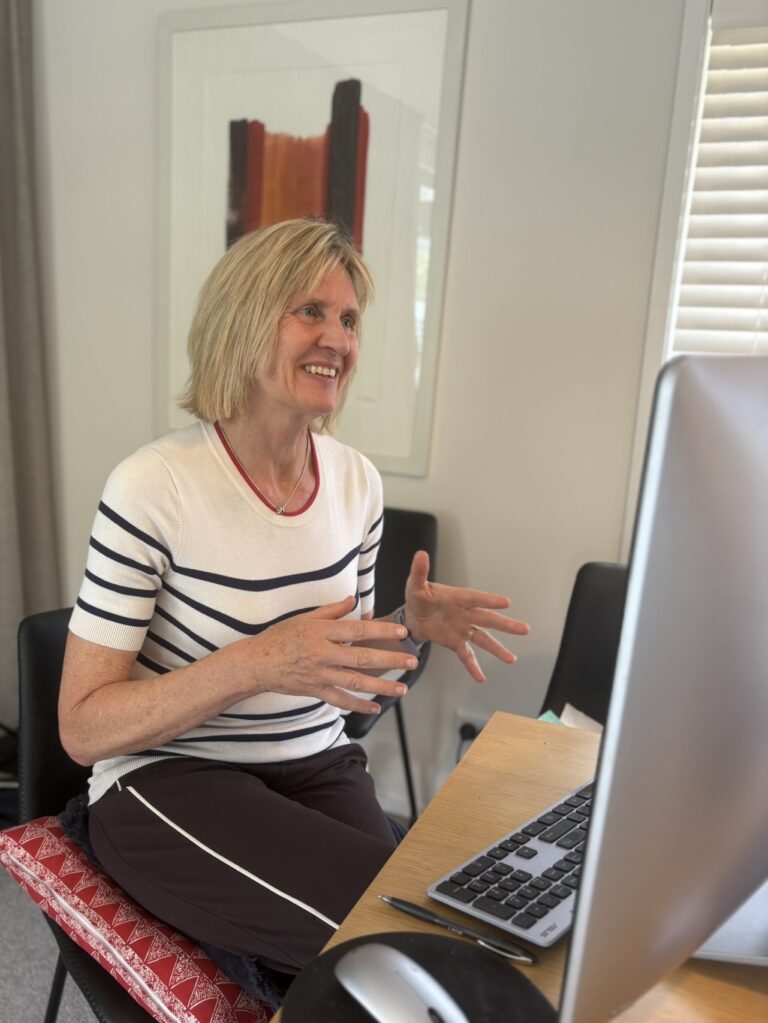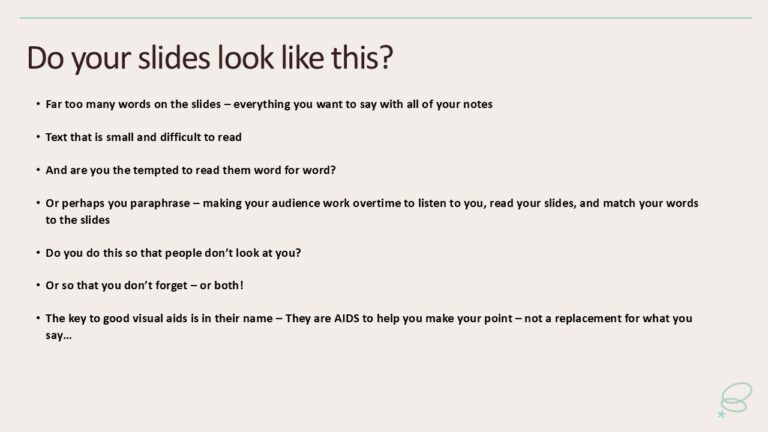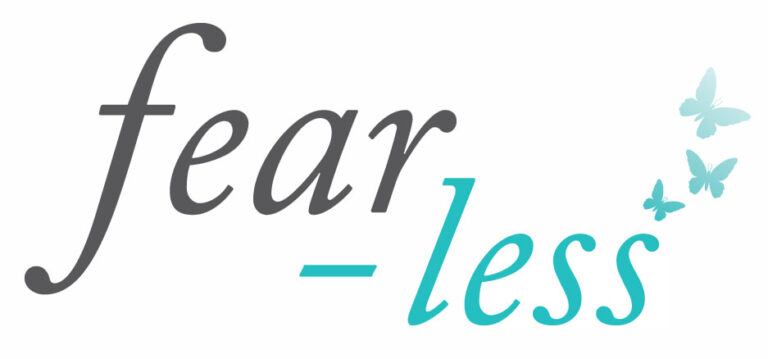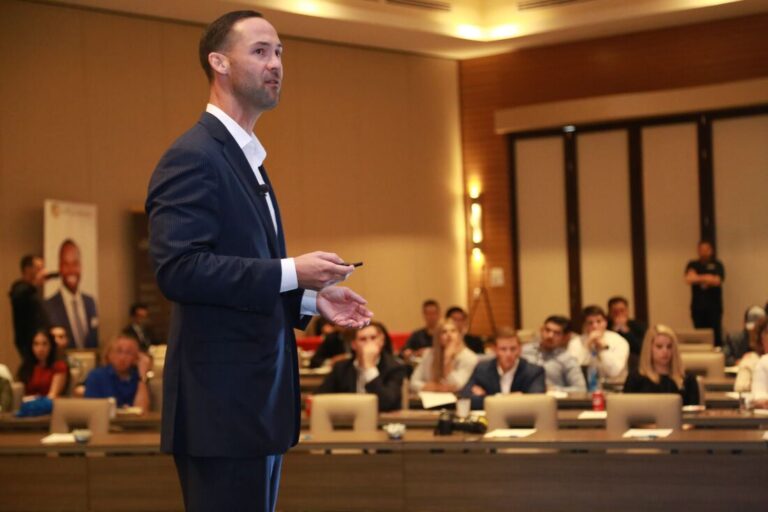Understanding Public Speaking Anxiety
I Have Public Speaking Anxiety – Should I Do a Course or Get Private Coaching?

When people ask me whether they should do a public speaking course or get private coaching, I used to have a very clear answer: Do a course. You don’t get better at public speaking by talking to one person — even if that person is...

Death by PowerPoint Is Alive and Well!

We’ve all heard the phrase “Death by PowerPoint.” And yet… it’s still everywhere. You know the kind of presentation I mean — slides packed with bullet points, sentences, even full paragraphs. The presenter either reads them word-for-word or paraphrases just enough to make you wonder...

Public Speaking and the Fear of Blushing

I used to be a blusher. When I spoke, when I liked a boy, or when I made a mistake—I turned red. My blushing reached its peak as a teen and resurfaced during menopause, when frequent hot flushes sometimes collided with embarrassing situations. After menopause?...

What Sparked Your Fear of Public Speaking – and What Should You Really Learn From It?

I was working with a banker recently when I asked him a simple question: “Can you remember when your fear of public speaking began?” At first, he couldn’t think of anything specific. But toward the end of our session, a memory surfaced. He said: “I...

Let’s Talk About the Fear No One Talks About

Let’s be honest—public speaking freaks a lot of us out. But here’s the thing… no one really talks about it.Over the years, I’ve asked large audiences, “Raise your hand if you’ve never been nervous about public speaking.” At most, a few hands go up. The...

How To Become a Public Speaking-Friendly Organisation

I was running a public speaking workshop for a company a few years ago, and the national manager attended. He commented on the value of public speaking. He said that hearing people speak – whether it is giving presentations or speaking up at meetings –...

Had a Speech That Bombed? How to Figure Out What Went Wrong and Fix It.

Everyone has experienced failure at work, but the public humiliation of a bombed presentation is particularly hard to handle. And it can stay with you for a long time. Unfortunately, a common reaction is for people to try to avoid public speaking after a failure...

Three Personality Types and One Fear – Public Speaking!

Laid-back Luke, Perfect Penny, and Sensitive Sarah all share a fear of public speaking. In this article I have used three personas to explain how different personality types can share this common fear. None of these personas represent a real person, but they are all typical...

A Three-pronged Approach to Dealing With Public Speaking Anxiety

If previous attempts to tackle your fear of public speaking have failed, this article is for you. It explains why learning public speaking skills, practice (preferably in a safe environment), and mindset shifts can work together to help you overcome a fear of public speaking....

Why It Is OK to Be a Nervous Speaker!

The number one goal of people who do my Fear-less public speaking course is to become a confident speaker. Their number two goal is to get rid of the nerves. With a bit of work, anyone can become a confident speaker, but getting rid...

The Fear-less Public Speaking Blog Turns 5! : A comprehensive guide to what is in it and what you may have missed.

I started the Fear-less blog 5 years old and have written more than 50 articles. I aim to write one a month – sometimes I wonder whether I will run out of ideas for new articles – but it hasn’t happened yet!I get about 10,000...

Becoming a More Confident Speaker Takes Two Things – Courage and Practice

Today’s blog post has a simple message. Everyone wants to become a more confident presenter. But confidence is not something that just happens. It takes courage and practice to become more confident. Confidence is the number one thing people who fear public speaking want to gain. “I want to...

How to Stop Public Speaking Anxiety From Spiraling

I am always looking for new ways to help people reframe their anxiety about public speaking, so I was thrilled to come across this TED talk by Lisa Damour – “3 steps of anxiety overload — and how you can take back control”.She explains the three...

How to Avoid the Dreaded Public Speaking Mind Blank – And What to Do if It Happens!

Ever had the experience of going blank in front of an audience? Forgetting what you were going to say and starting to panic? Or had an ‘out of body experience’ where you could hear yourself talking (even waffling)?! You may have felt like a horrified...

